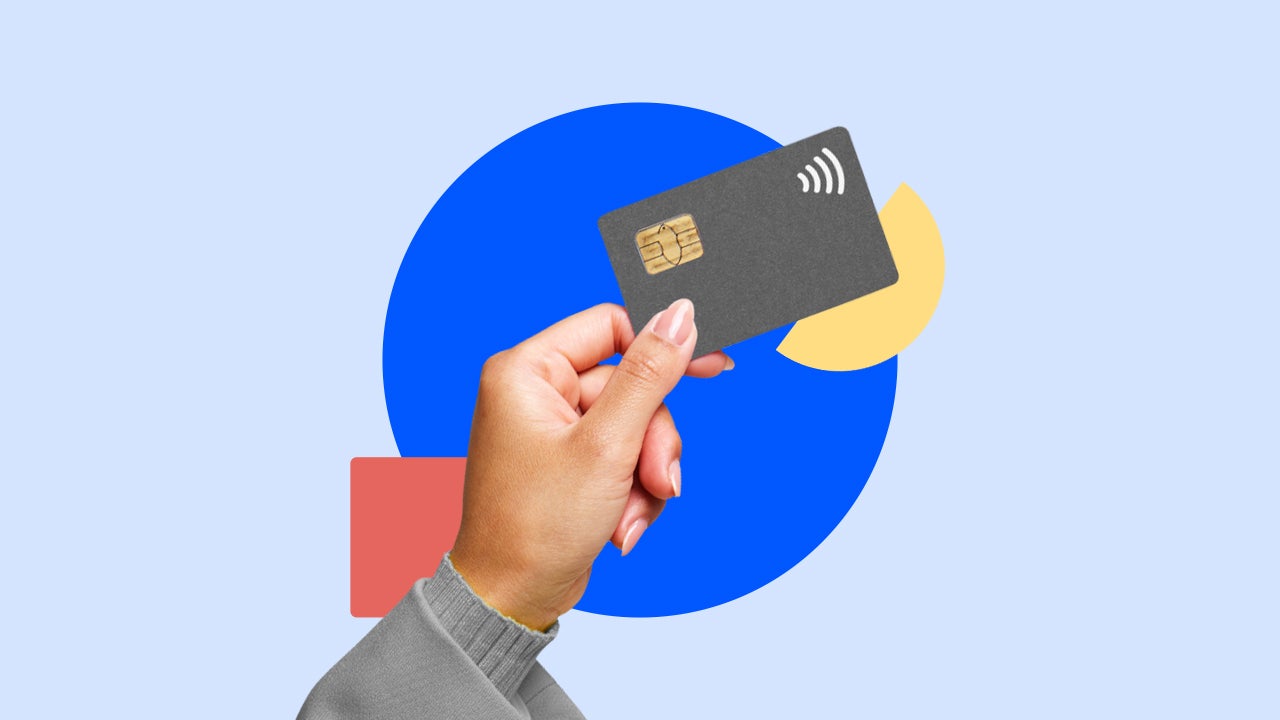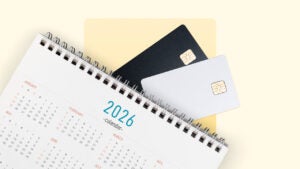Biggest credit card scams to look out for in 2025




Key takeaways
- Phishing and smishing scams, imposter scams and scams regarding your government benefits are some of the biggest credit card “gotchas” to watch out for in 2025.
- Criminals who get their hands on your credit card information may try to take over your accounts, charge fraudulent purchases to your name or both.
- Being suspicious of unsolicited calls, emails and text messages is a solid first step to avoiding credit card scams. If you believe a communication could be legitimate, contact the company directly.
Credit cards have always been targeted by hackers and thieves, and that is unlikely to change anytime soon. Unfortunately, the most common scams have changed right along with technology, which means there are always new credit card schemes to watch out for and avoid.
The rapid pace of technological innovation has outpaced security along the way, according to a 2025 Identity Fraud Study from Javelin Research. The researchers believe that this has created exploitable “gaps for fraudsters, who operate outside legal boundaries and have no qualms about exploiting human vulnerabilities.”
Data also shows that instances of credit card fraud are on the rise. The Consumer Sentinel Network’s Data Book 2024 revealed that credit card identity theft was the most common type of identity theft reported in 2024, with 449,032 reports in total.
If you want to avoid the biggest credit card scams of the day, arming yourself with information can help. Here’s a rundown of some of the worst credit card scams of 2025, how they work and moves you can make to avoid them.
1. Skimming and shimming scams
How this scam works
Credit card skimming scams happen when fraudsters get your card information by skimming it when you conduct transactions at retail point-of-sale devices and automated teller machines (ATMs). Shimming happens when thieves steal data from a card’s microchip.
A common credit card scam takes place when thieves use various devices to capture your card information when you’re making a purchase. For instance, they could attach wiring to a fuel pump at a gas station. Or, they could place a card skimmer inside an ATM card reader.
Criminals who perpetrate this scam may also set up a camera that captures your PIN number during the purchase. When they’re successful, they may use your data to make fake credit cards that charge purchases to your actual account.
How to avoid this scam
- Always cover the keypad when you enter your personal identification number (PIN) at ATMs, gas stations and retail outlets.
- “Test” the card reader by tugging on it and seeing if any device jiggles loose.
- Use credit cards over debit cards where possible since they offer better protection against fraud, including $0 fraud liability.
2. Public Wi-Fi credit card scams
How this scam works
Hackers use unsecured credit card networks to steal your credit card information and other sensitive data.
Public Wi-Fi credit card scams are nothing new, but they can still cost you in time and funds if you find yourself ensnared in one. Sophisticated thieves can create false Wi-Fi signals and, once you’re connected, they can monitor your internet traffic and even record credit card details without you knowing.
Once they have your details, they may charge fraudulent purchases to your credit card or try to open new accounts in your name.
How to avoid this scam
- Always use a VPN when you’re on a public Wi-Fi network.
- Install high-level antivirus software on all your devices.
- Never submit your credit card information in order to access an unsecured Wi-Fi network.
3. Credit card interest rate reduction scams
How this scam works
Scammers convince their victims that they can help them get lower interest rates on their credit cards and other loans.
Credit card interest rate reduction scams occur when a caller implies its company has special relationships with card issuers that can help secure lower interest rates. The Federal Trade Commission says consumers who receive a message like this “should listen to them with extreme skepticism, and delete them.”
Why? Because, by and large, robocalls promising to lower your interest rates are always fraudulent. No matter what a company claims, nobody can do anything for your interest rate that you cannot do for yourself. If you want a lower interest rate from your card issuer, the FTC recommends calling your issuer and asking for one.
According to the FTC, individuals who are tricked into paying third-party companies for a lower interest rate never see the promised savings and struggle to get refunds. Giving these companies your credit card information also leaves you open to other types of scams, like the use of your credit card number to make fraudulent purchases.
How to avoid this scam
- If someone calls you with promises to lower your credit card’s interest rates, hang up and block them.
- To see if you’re eligible for lower rates on your credit cards, call your card issuer directly.
4. Phishing and smishing scams
How this scam works
Scammers use various forms of unsolicited contact to lure consumers into sharing data. Where “phishing” typically occurs over email or the telephone, “smishing” uses text messages to lure you into a credit card trap.
The messages you receive can look like they’re coming from a legitimate business, or that they’re related to a recent purchase you made. Unpaid toll road text scams have also been huge in 2025 so far. The Federal Communications Commission (FCC) says this scam involves texts from criminals that say consumers have unpaid tolls they need to cover or they’ll be fined. Of course, the entire scheme is fake and the credit card information they share goes directly to scammers.
How to avoid this scam
- Use email and text spam filters to avoid receiving these messages.
- Ignore and delete unsolicited messages.
- If you receive a message from a company you work with, contact them directly.
- Never click on suspicious links in emails or text messages.
5. Social Security benefits scams
How this scam works
Criminals pretend to be from the Social Security Administration in order to access your bank account or credit card account information. With this scheme, criminals may call pretending to be from the Social Security Administration and say one of two things:
- You were overpaid benefits, and you need to pay some of the money back via a credit card or gift card.
- You were underpaid benefits, and they need your bank account information to deposit more money into your account.
In either case, the scammer is hoping to get their hands on your credit card details or bank account information. However, there are a few red flags to look out for. For example, they might rush you and demand that you provide them with personal information or your Social Security number immediately, and this is never a good sign.
They may also try to trick you by using fake caller IDs or official-sounding names. Additionally, scammers may ask for payment in order to receive your benefits or give you a phony bank routing number to deposit your benefits into.
In April of 2025, the SSA Office of the Inspector General (OIG) also warned that criminals were impersonating the SSA via email and sending a fraudulent link for consumers to download their Social Security statement. The goal with this scheme is luring consumers to fraudulent sites where hackers can extract their account information and other sensitive data.
How to avoid this scam
- Never click on links you receive via email from the SSA.
- Delete the communications you receive via email or text.
- If you need help with SSA benefits, call the Social Security Administration directly.
6. Government imposter scams
How this scam works
Criminals impersonate government workers in order to get their hands on your credit card information, account details, account login information and more.
Criminals might pretend to be an employee of the Federal Deposit Insurance Corporation (FDIC), the Internal Revenue Service (IRS) or another government agency, for example. In some cases, they might even use the real names of government officials in order to seem more legitimate.
This scam can take on different forms from here. The criminals may try to use their standing in a government agency to get you to share your credit card details or bank account information. They may claim you owe unpaid taxes or fees, and that you need to pay them with a gift card or another form of payment.
Government agencies do not send unsolicited correspondence asking for money or sensitive personal information, so if someone claims to be from the government and is doing this, they’re trying to scam you.
How to avoid this scam
- If someone contacts you claiming to be from a government agency, refuse their correspondence and contact the agency directly.
- Hang up the phone, delete the email and ignore the attempted contact. If a government agency needs you, they will send a letter.
How to protect yourself from credit card scams
While there are numerous credit card scams to watch out for, there are just as many ways to avoid them. These tips can help you avoid being a victim of credit card scams and other types of fraud:
What to do if you think you’ve been scammed
The good news about most types of credit card fraud is that consumers are typically not on the hook. Thanks to protections in the Fair Credit Billing Act (FCBA), consumers are limited to $50 in liability for fraudulent charges, although most credit cards come with $0 fraud liability policies.
If you think you’ve been scammed, however, there are several moves you can make to limit your losses and prevent further damage.
The bottom line
You can protect yourself from scams by keeping an eye on your accounts and credit reports, being skeptical of phone calls or messages from someone asking you about your accounts (or pretending to be from your bank) and keeping your personal information (including credit card details) secure.
If you find that some of your information has been compromised, report it to your issuer immediately to have the account closed, then file a report with the FTC and potentially with local law enforcement, too.
Why we ask for feedback Your feedback helps us improve our content and services. It takes less than a minute to complete.
Your responses are anonymous and will only be used for improving our website.





